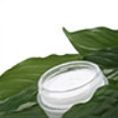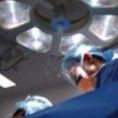General Dermatology
General Dermatology
Dermatologists are trained to treat patients of all ages, from newborns to the elderly. This includes the diagnosis, treatment and prevention of problems of the skin, hair and nails. Conditions common among children are moles and birthmarks, dermatitis, acne, and warts. In adults we treat a range of conditions such as cancers and pre-cancers, rosacea, psoriasis and shingles. We also treat eczema, skin allergies and other skin disorders that occur in all age groups, and carefully examine moles or other growths to determine whether they are or may become cancerous.
Acne Treatment
Acne is the term for the blocked pores (blackheads and whiteheads), pimples, and deeper lumps (cysts or nodules) that can appear typically on the face, neck, chest, back, shoulders and upper arms. Seventeen million Americans currently have acne, making it the most common skin disease in the country. While it affects mostly teenagers, and almost all teenagers have some form of acne, adults of any age can have it. Acne is not life-threatening, but it can cause physical disfigurement (scarring) and emotional distress.
Treatment for acne varies depending on the type and severity of lesions, as well as the patient’s skin type, age and life . Options include:
- Topical Medications
- Antibiotics
- Iso-tretinoin
- Blackhead Extraction
- Hormonal Treatment
- Microdermabrasion
- Chemical Peels
- Photodynamic Therapy
- Blu-U Light Treatments
- Acne specific skin care products
Acne scarring can be treated in a variety of ways as well. These include:
- Chemical Peels
- Microdermabrasion
- Dermapen (micro-needling)
- Soft Tissue Fillers
Mole Treatment
Moles or “nevi” are composed of groups of pigment producing cells called melanocytes. They are important to monitor because of their potential risk for turning into malignant melanoma. People with more moles have an increased risk of melanoma. Most Caucasian adults have about 20 nevi. Dysplastic moles, which are clinically and microscopically atypical appearing, are thought to be precursor lesions ( a small percentage of the time) of melanoma. Dysplastic moles occur in 30% of patients with primary melanoma and in 6% of their family members. People with a family history of dysplastic nevi or have numerous atypical appearing moles themselves should be carefully monitored for melanoma. It is important to watch for the warning signs of melanoma and the ABCDE’s of melanoma.
Moles may be removed because they are clinically worrisome or simply for cosmetic purposes. No matter what the reason, our providers at Moore Dermatology are happy to examine your moles and also to discuss mole removal options.
Dr. Moore is experienced in evaluating nevi on the skin as she served as the staff dermatologist at the Pigmented Lesion Clinic at Rush University Medical Center for 17 years.
Eczema Treatment
About 15 million people in the U.S. suffer from some form of eczema, including 10-20 percent of all infants. Symptoms vary from person to person but often include dry, red, itchy patches on the skin which break out in rashes when scratched.
Treatment involves the restriction of scratching, use of moisturizing lotions or creams, cold compresses and nonprescription anti-inflammatory corticosteroid creams and ointments. If this proves insufficient, physicians may prescribe special prescription barrier creams to help prevent flares, corticosteroid medication for flares, antibiotics to combat infection, or sedative antihistamines. Phototherapy is a common procedure that uses light to reduce rashes.
Psoriasis Treatment
Over seven million men and women in the U.S. of all ages have some form of psoriasis, which may be mild, moderate or severe. The most commonly affected areas are the scalp, elbows, knees, hands, feet and genitals.
Psoriasis cannot be cured but it can be treated successfully, sometimes for months or years at a time and occasionally even permanently. Treatment depends on the type, severity and location of psoriasis; the patient’s age, medical history and lifestyle; and the effect the disease has on the patient’s general mental health. The most common treatments are topical medications (topical steroids, topical Vitamin D derivatives), phototherapy (NB-UVB), photochemotherapy (PUVA), and oral (Methotrexate, Acitretin) or injectable medications (Enbrel, Humira, Stelara). Our Melrose Park office is one of the few providers in the area that treats psoriasis with the Xtrac excimer laser.
Rosacea Treatment
Rosacea is a chronic inflammatory condition of the skin frequently referred to as “adult acne”. It is characterized by redness, broken blood vessels, and flushing of the face and scalp. Patients may also experience pimples, swelling, itching, and scratchy eyes. It is also common for rosacea patients to have seborrheic dermatitis-basically dandruff of the scalp and face, characterized by rashes with greasy scale of the forehead, eyebrows, and around the nose. Rosacea is most often seen in patients with lighter skin color, although we do see it in all skin types. Triggers for rosacea include sunlight, caffeine, alcohol, spicy foods, hot liquids, and extreme temperatures. There is no cure for rosacea, but fortunately, there are many excellent treatment options available for patients today.
Wart Treatment
Warts are common growths that can appear anywhere on the body. They are caused by various strains of the Human Papilloma Virus or HPV. You can try treating them initially with over-the-counter salicylic acid treatments. Warts can be extremely stubborn to treat. Since it is a viral infection, warts will ultimately resolve once your immune system recognizes that there is a problem and decides to mount a response against the virus.
Here at Moore Dermatology, we offer a multitude of treatment options for warts. We find that what works best for one person may not work as well for another. We utilize a full arsenal of wart treatments including liquid nitrogen, Canthacur, intralesional Candida antigen, strong topical acids, intralesional Bleomycin, and surgical treatment. We may also recommend prescription medications to boost your immune response. Warts can be extremely frustrating, but with a little persistence, we can help you make them disappear.

Acne
Moles
Eczema
Psoriasis
Rosacea
Warts

Acne
Moles
Eczema
Psoriasis
Rosacea
Warts

Acne
Moles
Eczema
Psoriasis
Rosacea
Warts
- APPOINTMENTS
To make an appointment call the following offices:
- ELMHURST OFFICE
- 630.758.8688
- MELROSE OFFICE
- 708.450.5086
- SERVICES
- ONLINE FORMS
- SKIN PRODUCTS




